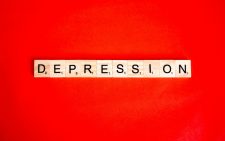Where the church and mental health meet…

Whenever you feel burdened and weary turn to the church for guidance, the saying goes.
For devoted Christians, this is the best gift of healing that they could ever come across.
To them, it overpowers any form of challenges that they could be going through.
Interestingly, religion and spirituality are both rooted in trying to understand the meaning of life.
However, religion could also be a double edged sword, something Neezar Achoki knows too well.
“If there’s one person who has experienced the judgmental phase of the church is me.
I feel that the church has become a place where you would receive all sorts of judgement, and this doesn’t help in nurturing people’s mental health,” he says.
All about business
Having grown up in the church, Neezar has been exposed to reality that it can be judgmental.
“Some big churches nowadays are run like businesses, and all they care about is protecting their reputation.
That’s why you’ll find when a gospel artiste has a scandal, the church will be the first to distance itself.
I have witnessed people get kicked out of church and with that in mind, I wouldn’t want to lie that that is a place where people are assured of a safe mental space,” he adds.
His sentiments are not any different from those of Rose Amianda, who believes that today’s Christians are too judgmental, and since the church tends to side with the majority then it becomes an unsafe space for anyone battling depression.
“Churches are judgmental; some Christian’s tend to believe that they can play a role in determining how others live.
Full vulnerability is not an option to people. It’s like a social status badge that needs to be maintained and any form of ripples are not allowed,” she says.
To her, this could be the reason why she has missed out on several church services since she hit her 20s.
Success and failure
A slew of research has tied being religious with better wellbeing and overall mental health.
A number of studies have found that devoted people have lower rates of depression and anxiety as well as a better ability to cope with stress levels.
On the contrary, other studies have also reported some negative effects of religion and religious education on mental health.
In some cases, religious beliefs and practices contributed to the development of certain disorders, such as obsession, anxiety and depression.
This then begs the question, is the church a safe space for people with mental health issues?
Antony Mwangi, also known as Pastor Tee says, the reason there could be a decline in church attendance is because people fear missing out on the fact that they don’t belong to a certain congregation.
He says that although mental health in the church is not a taboo, people don’t really talk about it because the church is adamant in believing that people are going through something and in Christ all their problems, issues are resolved.
This has grown into a worrying trend, because now, unlike before some preachers have associated success with materialism.
“There are people who believe that success is measured by what you have, your wealth and basically what you are able to afford.
They tend to forget that even the little things that are not counted as blessings are actually a show of success,” he says.
This in return causes some followers to slip into depression and anxiety.
“It is important to note that not all religious beliefs relate to better mental health.
Factors, such as denomination, sex, race and type of religious coping may affect the relationship between religion or spirituality and depression,” he adds.
On the bright side, Pastor Tee says it is important to highlight that some religious beliefs and practices, such as forgiveness, love and compassion have been integrated into the way the brain works and this plays an important role in mental health.
Call for inclusivity
On her part, Tracy Lumbasi, founder and team leader at Believe Mental Health Care says mental health and religion are like water and oil.
She strongly believes religion operates in a predetermined framework that does not allow deviations except only a set of approved vulnerabilities and mental health is not one of them.
“It is not per say a taboo, but an acclamation of spiritual or religious weakness.
Religion does not evolve, it only has an old and new testament, which fall on your pastors and self-interpretation and it’s sad to say, these interpretations are not inclusive,” she says.
According to her, the preaching doesn’t offer a sense of belonging or comfort to people with mental health issues and illness.
“Most young people are not going to church as it is not holding their spiritual beliefs, youths are becoming more self-aware, accountable in their values and actions and considering how churches are not safe spaces it leads most youth to mental health issues,” she explains.
This attributes to the rising cases of suicide cases, something that could possibly be prevented by inclusion of people, especially the believers.














